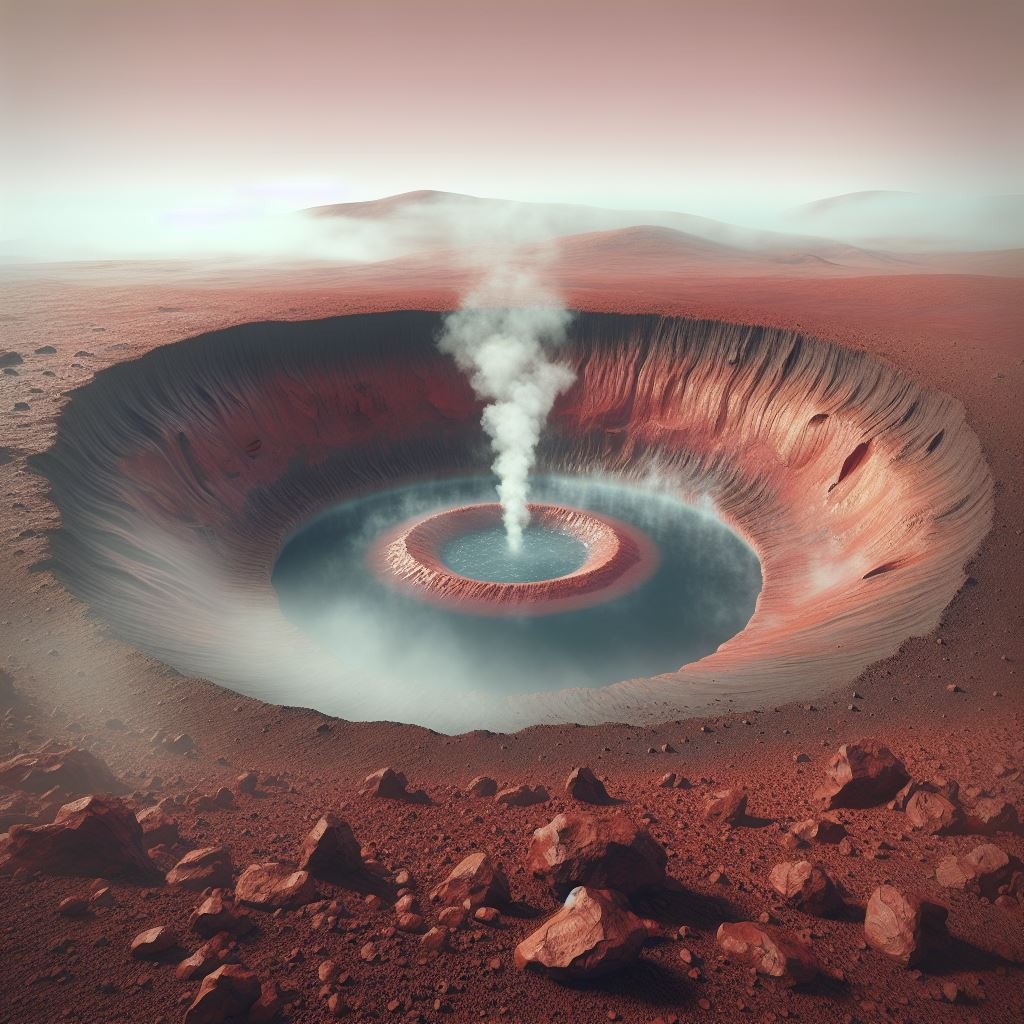
There was hot water on Mars 4.45 billion years ago. This extraordinary clue, which makes the presence of conditions suitable for life on the Red Planet more likely, comes from a study published in Science Advances. The discovery is based on the analysis of zircon contained in the Martian meteorite. NWA 7034, known as Black Beauty for its dark colour and its status as the second oldest meteorite ever found.
A message from Mars' past
The Curtin University research team, led by geologist Aaron Cavosie, used the nanoscale geochemistry to analyse traces of elements such as iron, aluminium, yttrium and sodium in the Black Beauty zircon. These elements, added during the formation of the zircon, indicate the presence of hot water during the initial phase of Martian magmatic activity.
“Hydrothermal systems like these were essential for the development of life on Earth,” says Cavosie. “Our findings suggest that Mars, during the formation of its crust, had water, a key ingredient for habitable environments.”.
This discovery not only sheds new light on Mars' past, but also fuels speculation about the possibility that the red planet may have hosted primitive life forms similar to those on Earth.
A bridge between the past and the future: the role of Starbottle
But what can we do today with these discoveries? This is where Starbottle, a platform that allows messages to be sent into space. Traces of warm water on Mars, such as those found in zircon, are evidence of the past. With Starbottle, however, we can send messages to the future.
Imagine sending a message that reaches exactly Mars, a statement that tells what we know today about the red planet. Or perhaps a thought for those who, in the distant future, will explore the Martian surface. What message would you leave for a future civilisation that might discover new secrets about Mars?
Conclusion: a new perspective on the universe
The discovery of hot water on Mars 4.45 billion years ago shows how much we still have to learn about our planetary neighbour. Thanks to innovative technologies such as those used in the study of the Black Beauty meteorite, and with platforms such as Starbottle, we can not only study the universe, but also interact with it, leaving traces of our passage.